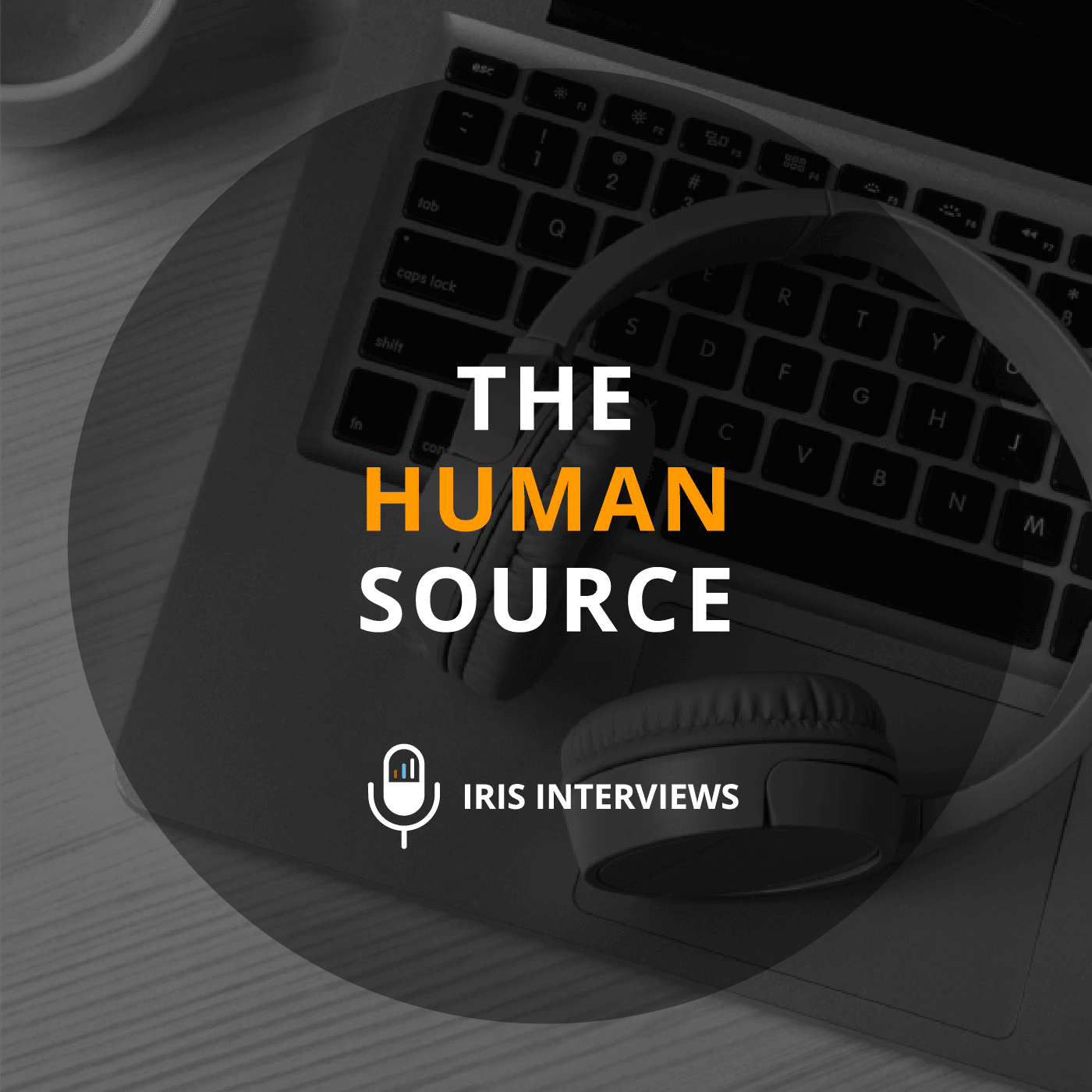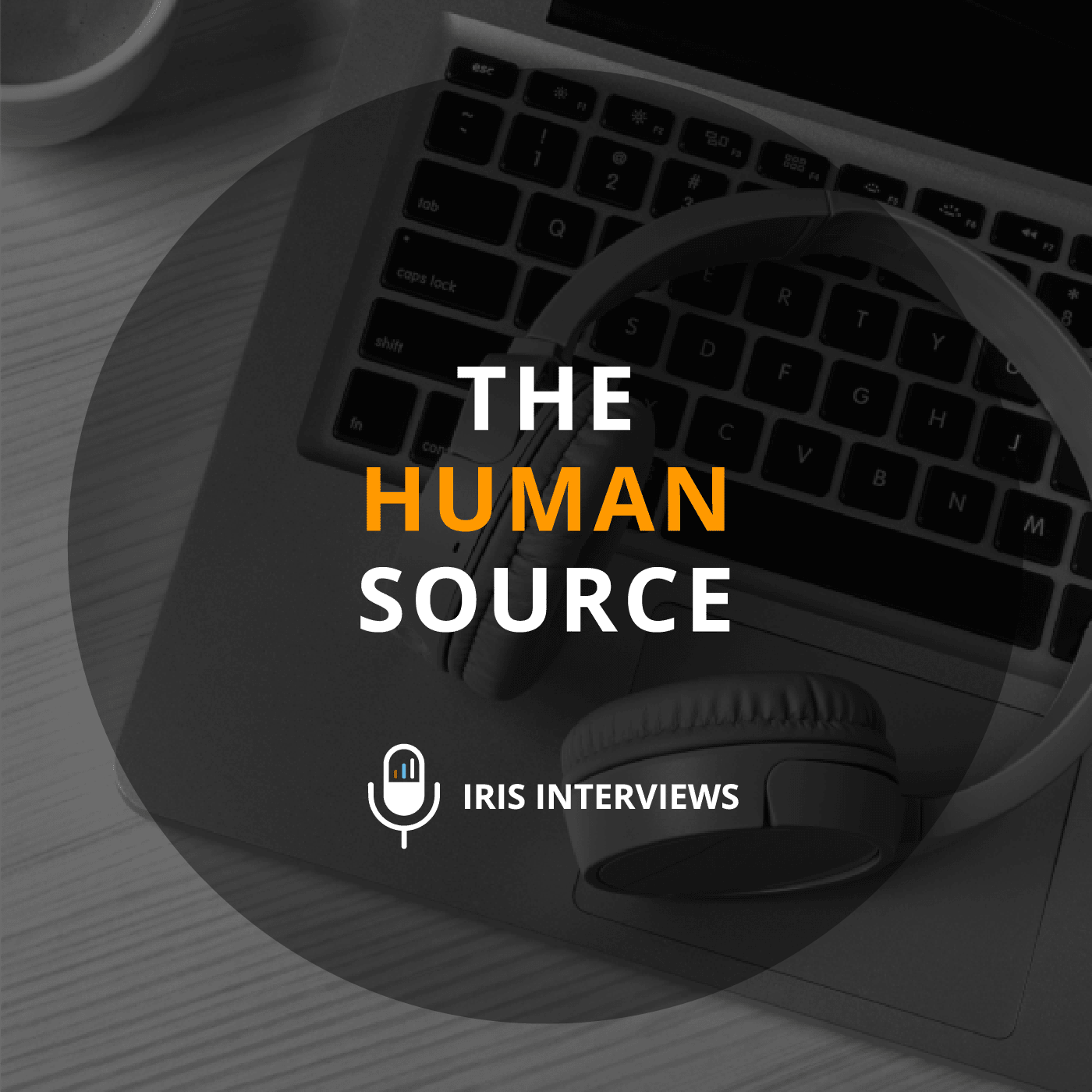Episode 32: AI in HR – we’re only scratching the surface
THE HUMAN SOURCE — a podcast for tomorrow’s HR and Payroll professionals.
Generative AI has taken the world of work by storm, perhaps being the biggest technological change we’ve ever seen.
But how does such a robotic tool fit into the world of people management?
Well, we’re seeing mass innovation in the recruitment space, with many tech and HR experts predicting AI will revolutionise the way we use employee data, opening up far more opportunities for enhanced employee wellbeing, engagement and L&D.
In this podcast, Julian Musson, Senior Product Director here at IRIS Software Group and Kinsey Li, Associate Director of HR Analytics at EY, talk about all things AI in HR. Kinsey.
Podcast overview:
How can the rise of tools help match suitable candidates to employers?
Matching supply with demand.
Demand – a lot of software vendors are focusing on developing skill-based talent intelligence software, which identifies the skills businesses already have V what they need.
Supply – organisations have talent communities highlighting the pool of candidates who might want to join them.
According to SHRM, 88% of companies globally already use AI in some way for HR and according to Zippia, 65% of recruiters currently use AI in the recruitment process specifically.
Are there any areas of concern in using AI to speed up recruitment processes?
If we want to use AI to help accelerate the process of screening candidates, concepts such as neurodiversity and workplace adjustments for disabled candidates are diversity factors that need to be considered when building AI.
This also raises the question; do we have enough historical data on these concepts to build into the AI?
Revolutionising the way we use employee data
The impact may seem bigger in HR because compared to other functions such as finance and marketing, the history of HR analytics is a little bit behind.
Only recently have we seen implementation of enterprise-scale HR systems, and small businesses still rely on pen and paper.
For AI to do its work on employee data, what do businesses need to put in place?
Businesses need to start with a strategy, or they risk jumping on AI solutions without much thought and realising they don’t have a solid data foundation to generate meaningful output.
AI blurs the boundaries across functions. Data should be considered as one big flow across the company, not separated between different functions, or the AI tool will be very limited in its output.
Advice for smaller HR teams keen to start using generative AI
Smaller organisations actually have an edge compared to larger enterprises as they can move much faster if they have some curious minds onboard.
New ideas have the potential to materialise in just a few days.
Automating some of the grunt work with AI
While AI does nothing new, it will enable us to do what we do at speed and at scale.
Assuming the AI is built and trained, it can reduce hours of work down to ten minutes if you ask it the right questions.
This frees up a lot of time so professionals can focus on value-adding tasks.
According to research by TotalJobs, more than half (54%) of UK workers agreed that the use of AI will help cut down on manual tasks and said it will empower them to learn new skills, and 46% said it will enhance their productivity.
Open up more opportunities for enhanced employee wellbeing and employee engagement with AI
It’s very difficult for HR professionals to provide tailored wellbeing advice as a lot of the data is not measurable or capturable, such as employee behaviour, unless extreme measures are taken such as looking up laptop statistics.
As our digital footprints grow and natural change management occurs, our perspective towards monitoring may change. AI can be used to analyse the sentiment of our digital footprint.
HR professionals can use the output to provide personalised wellbeing advice.
How can AI open up more opportunities for enhanced L&D?
AI will enable the decentralisation of knowledge.
For example, areas such as employee relations can’t be learned easily unless you’re learning from an experienced professional, but imagine you have an AI mentor who has been trained based on how a seasoned employee relations specialist would handle that situation.
It would be like having a coach all the time, and not having to book time in for guidance, providing the AI is responsible.
Would someone working in HR expect the tools that we’re delivering as vendors to have AI capabilities built into them?
The biggest challenge is change management and ensuring everyone is aligned and comfortable using new technologies.
Covid is a great example as it forced change management, and generative AI is the next big thing.
Media is doing the change management for us, and this means employees will become much less resistant to the change when their employers implement it.


